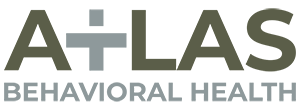Methamphetamine, or meth, can cause devastating effects long after the last use. The “meth aftermath” isn’t just about physical health—it impacts the brain, emotions, relationships, and overall quality of life.
The good news? Recovery is possible. With the right support, individuals can rebuild their health, regain control, and find purpose. At Atlas Behavioral Health, we provide evidence-based treatment, life skills training, and compassionate care to help individuals navigate life after meth.
What Is Meth Aftermath?
Meth aftermath refers to the lingering physical, mental, and emotional consequences of methamphetamine use. These effects can last for months or even years after stopping meth. Without professional help, many struggle to heal and move forward.
At Atlas Behavioral Health, we understand that recovery is more than just quitting—it’s about rebuilding every aspect of life. Through our comprehensive treatment programs, we guide individuals on their journey to wholeness and empowerment.
Physical Effects of Meth Aftermath
Meth use takes a serious toll on the body, and the damage doesn’t disappear overnight. Many individuals experience:
- Severe dental problems (often called “meth mouth”), including tooth decay and gum disease.
- Skin issues such as sores and infections from excessive picking or poor hygiene.
- Weight loss and malnutrition, leading to weakened immune function and fatigue.
- Heart and lung damage, increasing the risk of cardiovascular issues.
These health concerns make medical intervention essential. Our treatment programs address both physical and mental recovery, ensuring that clients receive the comprehensive care they need.
Psychological and Cognitive Effects
Beyond physical damage, meth aftermath can wreak havoc on the mind. Long-term users often face:
- Depression and anxiety, sometimes lasting long after stopping use.
- Paranoia and hallucinations, a result of meth’s impact on brain chemistry.
- Memory problems and cognitive decline, making it difficult to focus, learn, or retain information.
- Emotional instability, leading to difficulty managing stress and relationships.
Therapies like CBT (Cognitive Behavioral Therapy) and DBT (Dialectical Behavior Therapy) help retrain the brain, rebuild emotional regulation, and restore mental clarity.
Social and Emotional Impact
Meth addiction doesn’t just impact the individual—it ripples through families, friendships, and careers. Many in recovery face the challenge of repairing broken relationships that were strained by erratic behavior and trust issues.
Job loss and financial struggles add another layer of difficulty, making it hard to regain stability. Social isolation often follows, leaving individuals feeling disconnected from loved ones and their community.
At Atlas Behavioral Health, we emphasize group therapy and life skills training, helping clients rebuild connections and regain confidence.
The Recovery Process After Meth Use
Meth recovery isn’t just about stopping use—it’s about learning to live without it. Professional treatment provides the structure, support, and resources needed to overcome the lasting effects of meth.
Medical Detox and Initial Treatment
Detox is the first step in addressing meth aftermath. Since withdrawal symptoms can be intense, medical supervision is crucial. Clients may experience:
- Extreme fatigue as the body adjusts.
- Severe depression and mood swings.
- Intense cravings, making relapse prevention strategies essential.
At Atlas Behavioral Health, we use evidence-based treatments to help ease discomfort and prepare clients for the next phase of recovery.
Therapy and Emotional Healing
Healing after meth use requires more than just physical detox—it demands emotional and psychological recovery. Therapy plays a critical role in uncovering underlying trauma or co-occurring disorders such as PTSD, depression, or anxiety.
It helps individuals recognize and change negative thought patterns that contribute to addiction. Rebuilding self-esteem and developing a renewed sense of purpose are also essential parts of the recovery journey.
Through CBT, DBT, and experiential therapies, our team helps clients develop healthy coping mechanisms and emotional resilience.
Life Skills and Long-Term Recovery
Sustained recovery means relearning how to navigate daily life. Our life skills programs focus on:
- Healthy routines for sleep, nutrition, and stress management.
- Workforce reintegration, helping clients find employment or further education.
- Relationship repair, rebuilding trust and communication with loved ones.
Meth aftermath doesn’t have to define someone’s future. With structure and support, a fulfilling life is possible.
How Atlas Behavioral Health Can Help
Recovery from meth aftermath requires more than willpower—it requires a dedicated team and personalized treatment.
At Atlas Behavioral Health, we offer:
- Comprehensive, client-centered treatment tailored to each individual’s needs.
- Evidence-based and experiential therapies, addressing both mental and physical healing.
- A safe, non-judgmental environment, where clients can heal at their own pace.
- Affordable and accessible treatment options, removing barriers to care.
With a commitment to kindness, empathy, and respect, we guide clients toward long-term recovery.
Take the First Step Toward Healing
The road to recovery from meth aftermath isn’t easy—but it’s possible. If you or a loved one are struggling, help is available.
At Atlas Behavioral Health, you are never just a number. You are a unique individual, deserving of care, respect, and a second chance at life.
Contact us today to start your recovery journey.





